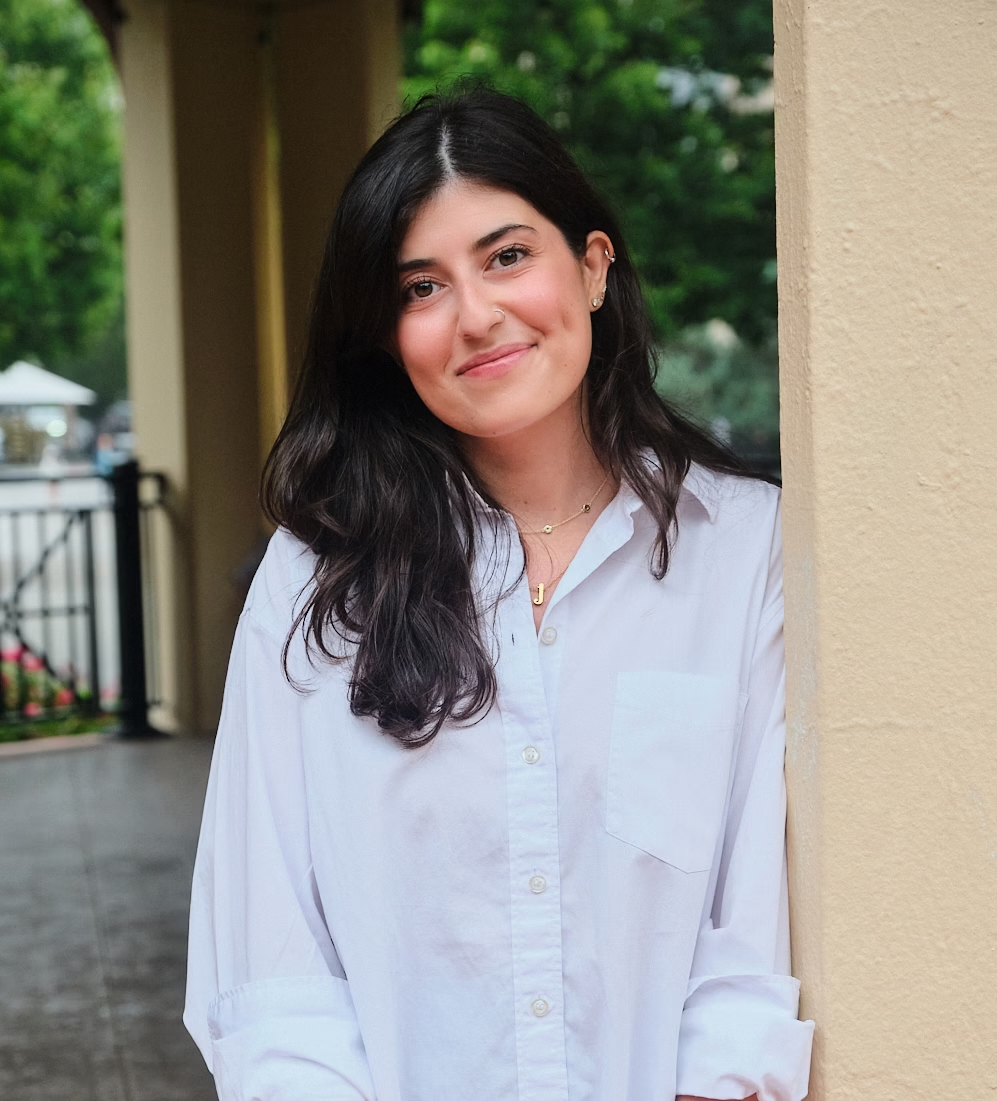Therapists

Juliette Lackow, LMSW
(SHE/HER)
Associate therapist, Licensed in NY & NJ
Juliette sees clients virtually
Are you feeling disconnected from your partner? Maybe you are struggling with communication, trust, or intimacy in your relationship? Whether you’re navigating relationship challenges, life transitions, or dealing with anxiety and depression, therapy can help you build deeper understanding and meaningful change.
I specialize in couples therapy and relationship counseling. I also work with individuals facing anxiety, life transitions, self-esteem issues, and depression. My approach is warm, collaborative, and non-judgmental. I help couples strengthen communication, rebuild trust, manage conflict effectively, and reconnect emotionally. For individuals, I focus on exploring how past experiences shape present patterns, building self-awareness, and cultivating healthier coping strategies.
Through our work together, you’ll learn how to relate more healthily to your emotions, express yourself authentically, and face life’s challenges with greater confidence and flexibility.
Whether you are a couple or individual, we will create a safe, supportive space where you feel heard, understood, and empowered. Reach out today for a complimentary consult call and to start your therapeutic journey.
When I’m not being a therapist, I’m always reading something. If I’m not reading, I’m walking, doing something out in nature, or trying out a new craft (next up will be experimenting with air-dry clay).
Q & A
1.How would you describe your therapy style?
My therapy style is holistic, collaborative, and a bit eclectic. What that means is that I draw from a range of therapeutic approaches to support you in a way that fits your unique needs and goals. My foundational training is in psychodynamic therapy, which focuses on how our past, especially early life experiences, can shape the way we think, feel, and relate to others today, often without us even realizing it. So I place a strong emphasis on helping you better understand yourself.
Over the years, I’ve also trained in other approaches, including trauma-informed care, Emotionally Focused Therapy (EFT), Cognitive Behavioral Therapy (CBT), mindfulness, and somatic experiencing. These tools allow me to adapt our work depending on what brings you in and what feels most helpful to you.
At the heart of my approach is collaboration. You’re the expert on your own life, and I believe therapy works best when we work together, combining your insight and my training to create a space that supports your growth, healing, and clarity.
For couples, I offer support in navigating difficulties with communication, connection, intimacy, and attachment. Relationships can often feel stuck in unhealthy cycles, making it hard to move beyond recurring arguments or disconnection. Through my training in EFT, I help couples explore how attachment styles, past experiences, and communication patterns influence the dynamics in their relationship. Together, we’ll work to build healthier ways of relating and strengthen the bond you share.
2. What types of clients do you work best with?
I work best with individuals and couples who are looking to better understand themselves and their relationships; especially those navigating the lasting impact of trauma, anxiety, life changes, and/ or relational challenges. Many of my clients come to therapy feeling stuck in patterns that are hard to shift, often shaped by earlier life experiences that continue to affect how they relate to others and to themselves.
I particularly enjoy working with people who are curious, open to self-reflection, and ready (even if a little scared) to explore what’s underneath the surface. You don’t need to have all the answers, or even a clear idea of where to start. Whether you’re processing trauma, struggling in your relationships, feeling overwhelmed emotionally, or simply wanting to feel more connected and grounded, we’ll work together to make sense of what’s going on and find a path forward that feels right for you.
I also work well with couples who are feeling disconnected or stuck in painful cycles of conflict. Using Emotionally Focused Therapy (EFT), I help partners understand each other more deeply, communicate more effectively, and rebuild trust and emotional intimacy.
3.What books have made the biggest impact on your life?
One book that has stayed with me recently is A Wild Dark Shore. It offers a deeply resonant reflection on grief—not just as an emotional response to loss, but as something that can occupy space in our lives when we hold tightly to identities, relationships, or past versions of ourselves that may no longer fit. As someone who works often with trauma and complex grief, I was particularly moved by the way the book explores the tension between letting go and reimagining connection. It also weaves in themes related to climate change, raising powerful questions about how we adapt to environments that are no longer sustaining us, both literally and metaphorically. These ideas mirror much of the therapeutic process: recognizing what no longer serves us, making space for new possibilities, and cultivating a more flexible and integrated sense of self.
Another enduring influence is Pride and Prejudice, a book I’ve returned to many times. What continues to strike me is its nuanced portrayal of perception and misperception; how often we believe we fully understand others, when in fact we’re filtering those experiences through our own internal narratives. For me, it’s a timeless reminder that each of us lives in our own internal world, and that shared meaning and relational repair often require us to slow down, check our assumptions, and genuinely seek to understand the perspectives of others. This resonates deeply with my work as a relational therapist, where so much of the healing lies in helping clients feel seen and in helping them see others more clearly, too.